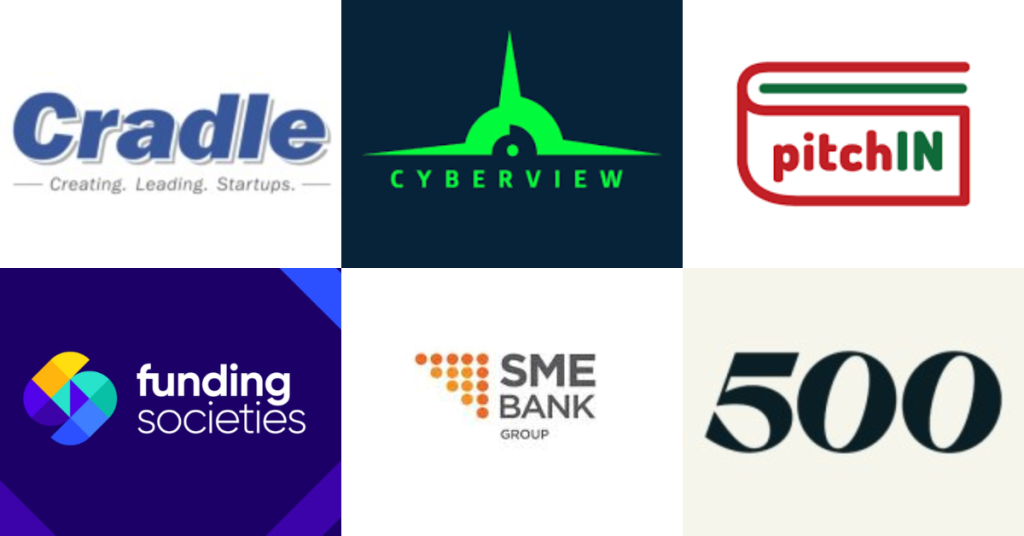Disclaimer: This article is for educational and informational purposes only. It is not intended to be a substitute for financial advice. Readers are encouraged to do their own research before arriving at any conclusions based solely on this content. Vulcan Post disclaims any reward or responsibility for any gains or losses arising from the direct and indirect use and application of any contents of the written material.
So, you want to start a business. How are you getting the money?
There is a myriad of ways, though none of them are necessarily easy. Here are some ways to get moolah so your business gets off the ground.
1. Bootstrapping
The simplest way you can start is by putting your own money on the line. Of course, this is easier when the capital to start your business is relatively low, or if you’ve saved up a sizeable amount of money.
The benefits of bootstrapping is that you retain complete control over your company and all business decisions without having to answer to investors.
However, you might have limited capital if you go the bootstrapping route, which might limit your business growth, too.
2. FFF
Also known as “Friends, Family, and Fools.”
You can always ask your friends and family to take up a stake in your venture. As for the fools part… Well, whether that is to be seen depends on the results of said venture.
There are differing opinions on whether you should do this. Some believe you shouldn’t mix your personal relationships with business.
Meanwhile, others believe that if you truly believe in your business venture, you’d give your loved ones an opportunity to cash in on that venture, too.
Just be sure not to let business damage your personal relationships—and vice versa.
3. Peer-to-peer (P2P)
Peer-to-peer financing is exactly what it sounds like—it’s when entrepreneurs and small businesses get capital (in relatively small amounts) from a pool of individual lenders.
P2P lenders are typically individual investors who typically want a better return on their cash savings than they would earn with a bank account or money market fund. Meanwhile, P2P borrowers seek an alternative to traditional banks or a lower interest rate than they could get at one.
In Malaysia, there are a number of P2P platforms registered with the Securities Commission to allow businesses to borrow and investors to lend capital.
These platforms include Capbay, cofundr, microleap, Funding Societies, and more.
4. Equity crowdfunding (ECF)
If you’re familiar with equity crowdfunding, you might be wondering how it differs from P2P financing.
According to Capital Markets Malaysia, the two are slightly different in the sense that with P2P, an issuer can be “hosted concurrently for different purposes” on multiple P2P platforms.
ECF is essentially a form of alternative fundraising that allows small businesses to raise capital from the public, using online platforms registered with the Securities Commission Malaysia.
In return for their funds, investors are given equity in the business.
5. Banks
Of course, you could also just get a loan from the bank.
In Malaysia, many banks tend to have special programmes and terms for small businesses, typically with lower interest rates. So, it’s worth looking into those when you’re just starting out.
Aside from your usual commercial banks, in Malaysia, there are Development Financial Institutions (DFI), which includes:
- Bank Rakyat
- Bank Pembangunan Malaysia Berhad
- Agrobank
- SME Bank
- BSN
- EXIM Bank
Banks such as SME Bank are also specifically designed to cater to various entrepreneurs in various industries. They offer an array of financial programmes.

BNM has set aside different schemes such as the Skim Pembiayaan Mikro, which supports the financing needs of microenterprises and self-employed individuals.
Financial Institutions offering Skim Pembiayaan Mikro include: Agrobank, Alliance Bank & Alliance Islamic, AmBank & AmBank Islamic, Bank Islam, Bank Muamalat, Bank Rakyat, Bank Simpanan Nasional, Maybank & Maybank Islamic, Public Bank & Public Islamic, and United Overseas Bank.
6. Venture capital
Of course, you could go the route of raising funds through venture capitalists.
Going this route typically means having more investors on the cap table, meaning more people will have a say in your business direction, though.
But more than financial support, venture capitalists are typical very risk-tolerant investors, and often offer lots of hands-on support, guidance, and networking opportunities.
7. Angel investors
In Malaysia, angel investors are described as individuals who are tax residents in Malaysia and whose total net personal assets exceed RM3 million.
Like VCs, angel investors are often open to taking on more risks, but they typically dole out less capital. That said, lesser capital also means lesser equity, which might be beneficial if you still want to maintain a large stake in the company.
8. Accelerators and incubators
Accelerators and incubators are programmes that businesses can sign up for to accelerate or incubate their growth. That much is given.
But if you perform well in these accelerator or incubator programmes, you may stand a chance to win prize money as well as other sorts of non-monetary incentives (e.g. mentorship).

Aside from “winning,” these programmes tend to help you set a benchmark for how your company is doing. But these can be quite time-consuming, as they usually require key members of a startup to be present, and can go on for months.
Some examples of notable recurring accelerator programmes include the MYStartup Accelerator, Cyberview Living Lab Accelerator, and Sidec’s many different programmes.
9. Grants
There are also some grants out there, typically organised by the government or corporations.
Compared to other kinds of funding, grants don’t require repayment, but they involve a particular purpose. As in, the money can only be used in a very specific way, even if using it for another purpose would have helped the business grow faster.
Cradle has the CIP Sprint, MDEC offers a variety of grants, and institutions such as MIDA also have certain grants available.
To each their own
At the end of the day, each entrepreneur will have to determine what is right for their own business. Factors such as what industry you’re in may play a huge factor, and it’s also about your own risk tolerance and business ambitions.
Everything has its own pros and cons, so be sure to think things through wisely before making your final decision.
- Read other articles we’ve written about Malaysian startups here.










